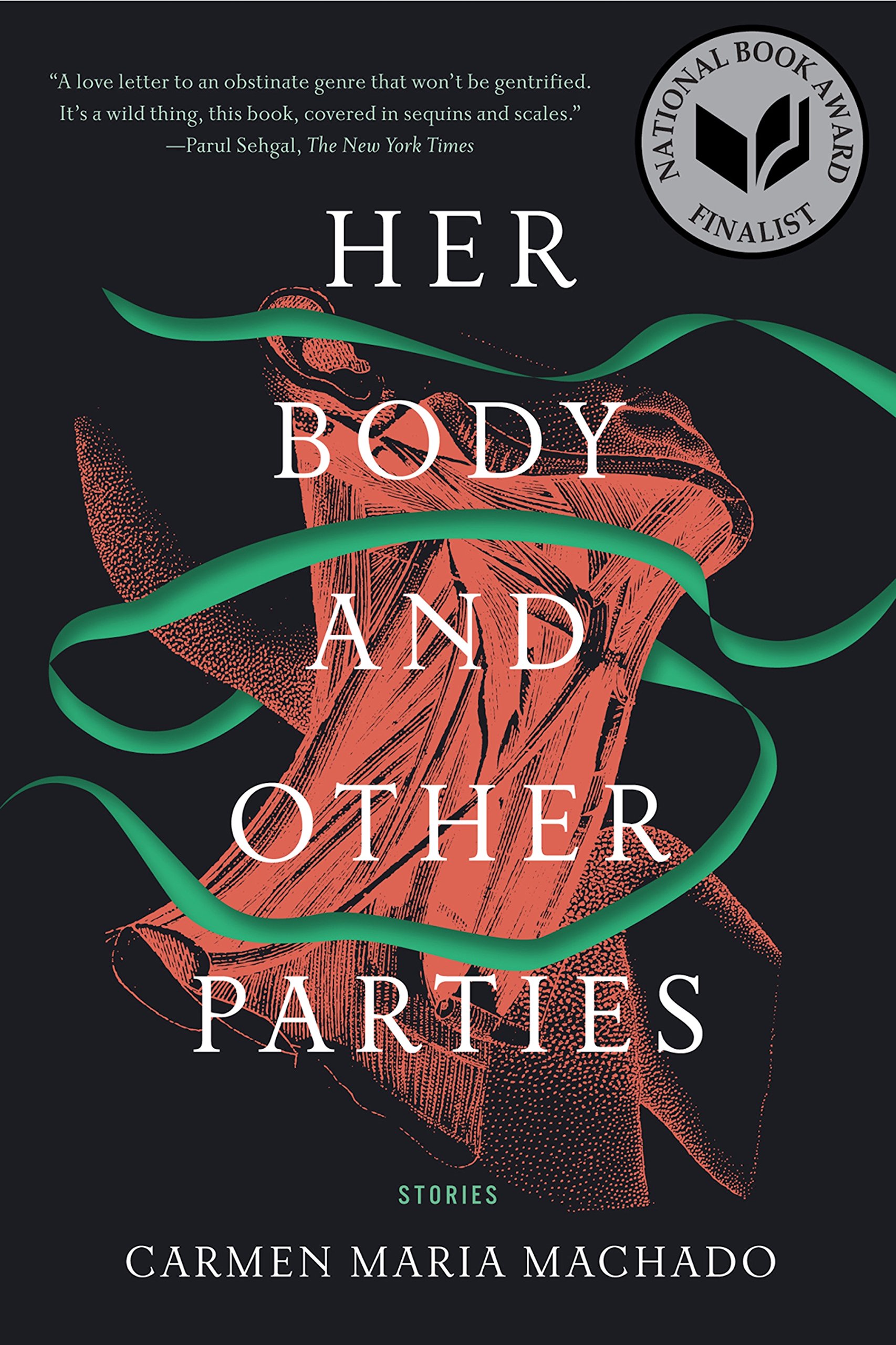Carmen Maria Machado Speaks on Literary Form and Style
with the Tanner Humanities Center
Thursday, Oct. 5, at 7 p.m., UMFA
by Missy Weeks

"Her Body and Other Parties" by Carmen Maria Machado
Carmen Maria Machado effortlessly navigates between literary form and eerie undertones, challenging traditional genre formats. Her narrative style, significantly influenced by her Cuban heritage and the vibrant storytelling tradition, abundant with elements of fantasy, fairytale, and horror, transcends conventional genre boundaries.
As a 2019 Guggenheim Fellow and a 2023 PEW fellow, Machado joins a lineage of artists, writers, and scholars recognized for their substantial contributions to their fields. Her unique brand of genre-defying storytelling and blending forms highlights overlooked societal, psychological, and personal anecdotes that are as haunting as they are enlightening.
Through an experimental approach to literary form, her memoir, "In the Dream House," recounts an abusive relationship through various literary tropes and styles, blurring the lines between memoir and critique. The "Dream House" becomes an ever-shifting entity, much like the memories and emotions associated with it, and the reader is left navigating its passages, witnessing the chilling ghosts of manipulation and control. Chapters like "Dream House as Pop Single" or "Dream House as Word Problem" add a peculiar lens to the unfolding drama, filled with self-aware critiques, hidden meanings, and a touch of speculative realism.
In "Especially Heinous," Machado reimagines synopses of "Law and Order: SVU" episodes. By employing the one-word episode titles as story catalysts, she navigates surreal renditions of the episodes, intertwining critical reflections on the portrayal of sexual violence with her imaginative storytelling. Machado's experimentation demonstrates her ability to meld social critique with innovative literary forms. She doesn't confine her stories to traditional narrative structures; instead, she deconstructs and reassembles them, inviting readers to engage with the story actively, piecing together its fragments and layers.
In a recent lecture at SUNY, Machado examined the indispensable role of human engagement in the creative process amidst a technological landscape continually reshaped by AI, stating, "The study of humanities is what makes us human. It's crucial for us to examine what we're making, what we're doing, what we're looking at, and why it matters. It's vital for us to pose challenging questions and break away from conventional ideas."
Her story-telling style, marked by an unmistakable aura of the haunted and uncanny, offers chilling and profoundly poignant atmospheres. Whether it's the green ribbon in "The Husband Stitch" – a fresh take on a classic urban legend – or the unsettling tales in "Inventory," Machado's stories are realms where trauma, memory, and societal expectations morph into tangible ghosts.
Machado's tales act as reflective mirrors, illuminating the liminal experiences of marginalized groups, especially women, LGBTQIA+ identifying individuals, and people of color. Through a keen exploration of societal norms and the human psyche, Machado's work resonates with the lived experiences of those navigating the often-tumultuous waters of societal expectations and personal identity. Her adeptness at portraying these experiences through a unique personal lens significantly contributes to the broader discourse on sociocultural dynamics and the transformative power of storytelling on often overlooked perspectives.
MEDIA CONTACTS
Missy Weeks, Tanner Humanities Center
missy.weeks@utah.edu |801-581-8879
Published October 03, 2023
